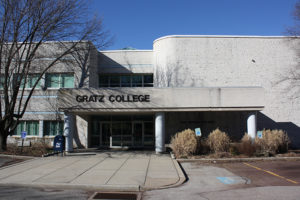The recent arrest of three University of California Los Angeles players in China for shoplifting, and their subsequent return to the United States, provides valuable lessons on character, humility, and taking responsibility as role models.


The recent arrest of three University of California Los Angeles players in China for shoplifting, and their subsequent return to the United States, provides valuable lessons on character, humility, and taking responsibility as role models.
In October, President Trump intervened to facilitate the release of three UCLA freshman basketball players who were caught shoplifting at several stores during a trip to China for an exhibition game.
The players—LiAngelo Ball, Jalen Hill, and Cody Riley—were suspended indefinitely from the basketball team once they arrived home, and they held a press conference in mid-November to own up to their misdeeds, which could have resulted in up to 10 years in a Chinese jail, NPR reports.
Each player at the press conference admitted to stealing, apologized for their actions, and pleaded for forgiveness in what’s become an embarrassing international incident for the university and the United States.
“I take full responsibility for the mistake I have made, shoplifting,” Riley said. “I know that this goes beyond me letting my school down, but I let the entire country down.”
“I take full responsibility for my actions, and I’m sorry,” said Ball, younger brother of Los Angeles Laker Lonzo Ball.
Jalen Hill told reporters “what I did was stupid, there’s just no other way to put it.”
The students also recognized the impact of their actions on their family, friends, teammates, university, and the United States.
“I apologize to my teammates, my coaches, and my family because of how much negative attention that I put on them that they do not deserve,” Hill said.
All three students stressed that the stealing is not their origin or destiny, and vowed to learn from the experience so it doesn’t happen again.
“I’d also like everyone to know that this does not define who I am,” Ball said. “My family raised me better than that and I’m going to make myself a better person from here on out.”
While these young men are not necessarily role models for most children, as parents don’t want their kids to become shoplifters, they are role models for some, a fact that Riley addressed in a message to his younger brother at the press briefing.
“To my younger brother, Ben, this is not the example that I want to set for you,” he said. “But from here on out, I promise I will be the best role model I can be . . . for you to look up to.”
Taking responsibility is tough, but the players’ comments show their willingness to own up to their action, to ask for forgiveness, and to enter the slow process of rebuilding trust. Children who watch their athletic heroes humble themselves learn this is the only way to grow. People who can publicly admit their failures, seek the forgiveness of those they’ve wronged, and actively seek to change are the only ones worthy of emulation.
In the book The Death of Character, University of Virginia sociologist James Davison Hunter wrote that the most essential feature of character “is the inner capacity for restraint—an ability to inhibit oneself in one’s passions, desires, and habits within the boundaries of a moral order.”
In this case, the student athletes failed by shoplifting.
But Hunter notes that “character is, in explicit ways, the embodiment of the ideals of a moral order . . . ” and the contrition and apology offered by the students illustrate their submission to a moral order they’ve violated.
This is the world we live in: one with fallible heroes who grow only by humility and taking responsibility.
Coaches looking to build strong character in students can find resources in University of Virginia’s basketball program, which coach Tony Bennett built on Five Pillars: Humility, Passion, Unity, Servanthood, and Thankfulness.